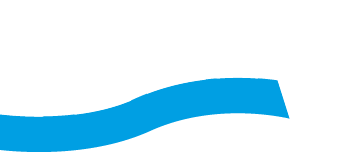Closing the water cycle through efficient and innovative technologies
Delegates – programme book available now: see below for more details
Instructions for Platform, Poster and Poster Pitch presenters
LET 2024 programme details
A digital Programme Book is now available for delegates. Please download this using the emailed instructions you were sent (the latest delegate update email). Details will also be provided at registration, along with a printed version.
Workshop day
Workshop Session I: 13: 30- 15: 00
Workshop 1:
Cybersecurity in water and wastewater technologies: risk assessment for operational technology (OT) assets
Prof. Dr. Christian Zenger, Ruhr-Universität Bochum and Physec GmbH
Ronald Derler, Lagezentrum CyberSec@Wasser and Kompetenzzentrum Digitale Wasserwirtschaft gGmbH
Abdullah Ahmad, Physec GmbH
Workshop 3:
Water reuse: from technical innovation to validation and implementation
Univ.-Prof. Dr.-Ing. habil. Thomas Wintgens, RWTH Aachen University
Dr.-Ing. Benedikt Aumeier, Dr.-Ing. Pascal Finkbeiner, TU München
Dr.-Ing. Manuel Krauß, FiW e.V., Aachen
Jürgen Heinrichmeier, WTE Wassertechnik GmbH
Workshop Session II: 15:30 – 17:00
Workshop 2:
Digital operation and digital twins in water and wastewater technologies: case studies and future developments
Dr. Dominik Leutnant, Emschergenossenschaft / Lippeverband
Tom Siegel, WTE Betriebsgesellschaft mbH, Process Technology
Alexander Staedtke WTE Betriebsgesellschaft mbH, Process Technology
Workshop 4:
Water-smart economy: How advanced technology can enhance circularity capturing the full value of water?
Dr. Kristina Wencki, IWW Water Centre, Mülheim an der Ruhr
Mr. Frank Rogalla, Aqualia
Welcome Reception: 17:30 – 19:00
Welcome Addresses
The Tuesday programme will commence at 9:00 am with a welcome address.
Plenary Keynote Session
The plenary session will feature multiple inspiring keynotes from leading voices and thought leaders. All the keynote speakers are the top specialists and most prominent figures within the water sector and beyond.
Norbert Jardin, Ruhrverband, Germany – Innovation and Resource Recovery
Ratul Das, ACWA Power, Saudi Arabia – Low energy desalination
Liu Ye, University of Queensland, Australia – Greenhouse gas emissions and net-zero targets
Jorg Drewes, Technical University of Munich, Germany – Integrated alternative source management to address water scarcity
Jeffrey Lewis, ECT2, Sweden – PFAS and other forever chemicals: Toxicology from a global perspective.
Round Table Discussion
New European Regulations as drivers for innovation and technology development at 13:30 pm.
Moderator:
Gari Villa-Landa Sokolova, Eureau
Panellists:
Miriam Haritz, German Federal Ministry for the Environment, Nature Conservation, Nuclear Safety and Consumer Protection;
Morten Rebsdorf, Aarhus Vand;
Oliver Puckering, Xylem;
Wendy Francken, President EWA;
Tom Mollenkopf, President IWA;
Jörg Drewes, TU Munich;
Natalie Páez, TU Munich.
For more information, please see the LET 2024 Plenary Keynote Speakers (see below)
Conference Technical Sessions
Drinking Water Track
See below for Wastewater Track details
Technical Session 1: Developments in Digitalisation
Session Chairs: Enrique Cabrera, Polytechnic University of Valencia, Spain & Burkhard Teichgräber, EG/LV, Germany
Invited Speaker: Jaume Alba, Spain: Digital Software platforms for Advanced Control of Industrial Spills in Sewerage Networks
Zhiguo Yuan, Hong Kong, SAR: Data-Enabled Estimation Method Using Simple Digital Monitoring Sensors: Analysis Sewer Inflow And Infiltration
Discussions
Morning Break (30 mins)
Invited Speaker: Heiko Althoff, Germany: Successful digitalization approaches for system operators
Patricia Gómez-Martínez, Spain: Innovative Tools To Control Organic Matter And Disinfection Byproducts “HE IntoDBP”. The Case Study Of Madrid
Nils Zickermann, Netherlands: A Parametric Framework For Designing And Modelling Drinking Water Treatment Plants
Discussions
Poster Pitches:
Wolfgang Uhl, Norway: Resource-efficient Digital Optimization Of Dual Media Filtration In Drinking Water Treatment
Pol Vidal Lamolla, Spain: Improving Customer Segmentation For Decision Support Systems In Urban Water Supply
Isma Lebbe & Mohamed Sabri, Sri Lanka: Water Horizons: An Comprehensive Review Of Smart Water Systems For Global Sustainability
Lunch (60 mins)
Technical Session 3: Membranes, hybrid systems and new materials
Session Chairs: Eric Hoek, UCLA Samueli School of Engineering, USA & Jonathan Clement, Ramboll, Singapore
Invited Speaker: Eric Hoek, USA: Development of membrane based brine concentration, crystallization, and valorization
Alexander Mitranescu, Germany: Harnessing Hydrodynamic Effects Of Assemblies Of Surface-patterned Membranes And Feed Spacers To Reduce RO And NF Membrane Fouling: A Numerical Investigation
Gilda Carvalho, Australia: Combined Nanofiltration And Electrochemical Process For PFAS Removal And Destruction From Contaminated Water
Discussions
Afternoon Break (30 mins)
Invited Speaker: Gilbert Galjaard, Netherlands: Understanding the emerging role of flat sheet membranes
Olga Ferrer, Spain: Assessment Of Submerged Ultrafiltration Ceramic Membranes As SWRO Pre-treatment Under Challenging Conditions
Na You, Singapore: Investigation on the catalytic performance of ferromanganese oxide-functionalized ceramic membrane (MFOx@CCM) as a nano-reactor (NR) in ozonation process
Discussions
Poster Pitches:
Gabriela Scheibel Cassol, Hong Kong, China: Membrane Optimization And Waste Heat Recovery For Highly Efficient Green Hydrogen Generation From Seawater Via Integrated Alkaline Electrolysis
Wastewater Track
Technical Session 2: Carbon and energy neutrality and greenhouse gas emissions
Session chairs: Amanda Lake Jacobs, USA & Zhiguo Yuan, City University of Hong Kong, Hong Kong, China
Invited Speaker: Eberhard Morgenroth, Switzerland: Off-gas monitoring – key towards net-zero in wastewater treatment plants
Oriol Carbó Monmany, Spain: Stable and controlled mainstream HRAS, partial nitritation AGS and anammox for a suitable effluent quality
Maria Valtari, Finland: Demonstrating N2O Mitigation In Two Advanced Full-scale WWTPs
Discussions
Morning Break (30 mins)
Invited Speaker: April Gu, USA: Pathways Towards Decarbonation and A Net-zero-carbon Water Sector
Konrad Koch, Germany: Ex-situ Biomethanation As An Energy Buffer At WWTPs: Experiences From 450 Days Of Operation At Pilot-scale
Kristoffer Ooms , Germany: Enhanced Sector Coupling Of Wastewater, Energy And Transportation Through Power-to-Methanol – A Case Study For The WWTP Bottrop
Discussions
Poster Pitches:
Vanessa Parravicini, Austria: A One-stage Biological Scrubber As Key Technology In A Novel comprehensive Concept To Reduce Nitrous Oxide Emissions In wastewater Treatment Plants
Maria Piculell, Sweden: High Biomethane Potential In Moving Bed Biofilm Reactor Sludge – The Route To Energy Neutrality
Michelle Young , USA: Making The Change To Low DO: Practical Guidance For Suboxic (Low DO) Biological Nutrient Removal Based On Full-Scale Operations
Lunch Break (60 mins)
Technical Session 4: Resource Recovery and Sludge Treatment
Session Chairs: Ana Soares, Cranfield University, UK & Konrad Koch, Technical University of Munich, Germany
Invited Speaker: Frank Rogalla, Spain: The Rainbow of Resource Recovery: The Black, The White, The Red, The Brown- The Purple and Yellow
Bart Saerens, Belgium: Creating A Positive Business Case Around Nitrogen Recovery From Digested Sludge Centrate
Phillip Wilfert, Netherlands: Recovery of valuable biopolymers from sewage sludge- A European case study
Discussions
Afternoon Break (30 mins)
Invited Speaker: Regina Gnirss, Germany: Wastewater Heat Recovery In Berlin – Strategic Approach To Exploit Potential
Vincenzo Pelagalli, Italy: Mordenite And HZSM-5 Zeolites Employment In The Catalytic Pyrolysis Of Municipal Sewage Sludge Towards The In-situ H2S Removal From Syngas
Ashish Sahu, Norway: Achieving Asset Optimisation And Higher Biomethane Yields With Thermal Hydrolysis
Discussions
Poster Pitches:
Simi Reuna, Finland: Recovery Of Metal Phosphates From The Tertiary Treatment Of Wastewater
Amanda Vierwind, Netherlands: Valorisation Of Carbon Into Biopolymers: A Feasibility Study Of Polyhydroxyalkanoate (PHA) Production From Activated Sludge
Christoph Kormann, Germany: Simple, Cost-effective And Efficient Desulphurisation Of Digester Gas By Micro-aeration
Conference Technical Sessions
Drinking Water Track
See below for Wastewater Track details
Technical Session 5: Advancements in Desalination
Session Chairs: Ratul Das, ACWA, Saudi Arabia & Paul Buijs, 1st:water, UAE
Invited Speaker: Olga Ferrer, Spain: LIFE INDESAL: Improving Sustainability Of Seawater Desalination With An Integrated Process For Water, Energy, And Resource Production
Mike Boyd, USA: Advanced and Minimum Liquid Discharge (MLD) Reverse Osmosis Technologies
Leili Abkar, Canada: Optimising Specific Energy Consumption In Brackish Water Reverse Osmosis (BWRO) Desalination Systems
Discussions
Morning Break (30 mins)
Invited Speaker: Paul Buijs, Netherlands: The Roadmap to Desalination Cost Reduction
Maharshi Patel, Germany: Does Combination Of Surface-Patterned Thin-Film Composite Membrane And Feed Spacer Improve Anti-Scaling Propensity?
Alla Alpatova, Saudi Arabia/Ukraine: Effective Utilization of CO2 Gas in Membrane Filtration
Discussions
Poster Pitches:
Bokjin Lee, South Korea: Evaluation Of TDS Removal Performance Of Pilot-Scale Membrane Capacitive Deionization System
Changseog Oh, South Korea: Study On TDS Removal Using Pilot-scale Membrane Capacitive Deionization(MCDI) With Circulation Process
Lunch (60 mins)
Technical Session 7: Micro-Contaminant Monitoring and Removal
Session Chairs: Marta Carballa, University of Santiago de Compostela, Spain & Jörg Drewes, Technical University of Munich, Germany
Invited Speaker: Vera Kohlgrueber, Germany: Implementation Of Targeted Micropollutant Removal On Municipal WWTPs In Baden-Wurrtemberg – A Look Back At Years Of Success And A Promising Outlook For The Future
Christa Morgenschweis, Netherlands: Combined Removal Of Micropollutants And Nutrients From Municipal Wastewater In The Netherlands
Elin Lavonen, Sweden: Effect-based Analyses — A Novel Strategy To Assess Removal Of Micro-contaminants By Water Treatment
Discussions
Afternoon Break (30 mins)
Invited Speaker: Sema Karakurt-Fischer, Switzerland: Elucidating and Fostering the role of Biotransformation in the Abatement of Micropollutants
Alexander Sperlich, Germany: Removing Per- And Polyfluoroalkyl Substances (PFAS) From Groundwater With High Concentrations Of Natural Organic Matter
Marta Carballa, Spain: Fate of pharmaceuticals and antibiotic resistance genes in high-rate activated sludge systems
Discussions
Poster Pitches:
Philipp Sperle, Germany: Photolytic Ozonation As Promising Alternative AOP Using UV-LEDs
Anna Segues Codina, Spain: Manganese Oxide Functionalised Graphene Sponges For The Electrochemical Water Treatment And Disinfection
Veronika Zhiteneva, Germany: Risk-based Human Exposure Assessment Of Chemicals In The Circular Economy
Wastewater Track
Technical Session 6: Innovative processes
Session chairs: Mark van Loosdrecht, Delft University of Technology, Netherlands & Michelle Young, Carollo Engineers, USA
Invited Speaker: Christoph Donner, Novel Approaches for Wastewater Treatment and Reuse in Berlin, Germany
Elin Ossiansson, Sweden: Enhanced Biological Removal Of Nitrogen And Phosphorus In A Continuous Biofilm Process With Bio-based Carriers
Miriam Tena, Spain: Demonstrative 100% Solar-powered Anaerobic Photobiorefinery Based On Purple Phototrophic Bacteria
Discussions
Morning Break (30 mins)
Invited Speaker: Arne Wieland, Germany: 15 Years Of Ozonation For Micropollutants Removal In Europe- A Review
Grit Hoffmann, Germany: Optimisation And Monitoring Of Hybrid Coagulation-PAC-UF Processes For The Elimination Of Micropollutants In Advanced Wastewater Treatment
Charlotte Bopp, Switzerland: A Winner For The Treatment Of Micropollutants At Quaternary Stage In Wastewater: The Combination Of Ozone And Granular Activated Carbon
Discussions
Poster Pitches:
Jürgen Heinrichmeier, Germany: A Simple Bioelectrochemical Approach For Ammonia Recovery From Municipal Wastewater Respectively Anaerobic Sludge Liquor
Jaap Vogelaar, Netherlands: BIOPAQ RISE Introduces Innovative External Separators For High Rate Anaerobic Waste Water Treatment
Maximilian Werner, Germany: Impact Of A Hybrid MBR Process On Downstream Ozonation To Further Purify Wastewater
Lunch (60 mins)
Technical Session 8: Closing the Water Cycle
Session Chairs: Lisa Bross, DWA, Germany & Despo Fatta-Kassinos, University of Cyprus, Cyprus.
Invited Speaker: Krishna R Pagilla, USA: Advancing Reclaimed Water for Potable Reuse – Technical and Non-technical Strategies for Successful Implementation
Christoph Donner, Germany: Semi-closed urban water cycle in Berlin- Treatment Options to remove organic micropollutants
Jonas Aniol, Germany: Employing rapid infiltration trench technology to establish stable redox conditions in a heterogenous aquifer for drinking water production
Discussions
Afternoon Break (30 mins)
Invited Speaker: Thomas Wintgens, Germany: Closing Loops in the Water Cycle – Advances in Treatment and Recovery Technologies
Katharina Fesch, Germany: Assessment Of Managed Aquifer Recharge (MAR) To Increase Groundwater Availability In Lima – Peru
Javad Ahmadi, Germany: Ensuring proper removal of viruses and mobile genetic elements during water reclamation employing ceramic ultrafiltration combined with pre-ozonation and coagulation
Discussions
Poster Pitches:
Achim Reid, Germany: Ozonation And UV Disinfection: Utilizing Synergies Between Micropollutant Removal And Water Reuse
Veronika Zhiteneva, Germany: Practical Experience With Online E. Coli Measurement To Derive Training Data Set For Microbial Water Quality Model
Eva Reynaert, Switzerland: Combining Online Sensors With Process Understanding For Safe On-site Water Reuse
Technical Tours
Tour 1: Tour of the large-scale demonstration plant for phosphorus recycling at the Emschergenossenschaft’s central sludge treatment plant in Bottrop
A large-scale demonstration plant for phosphorus recycling from sewage sludge incineration ash has been set up at the Bottrop wastewater treatment plant. The excursion offers you an impression of the implementation of phosphorus recovery through a wet-chemical process using the PARFORCE technology. After a brief introduction, you can look forward to a tour of the demonstration plant and an explanation of the process and plant operation.
Tour 2: Tour of the Nereda process for the biological treatment of wastewater at the Altena wastewater treatment plan of the Ruhrverband
The Nereda® process for the biological treatment of wastewater is being used for the first time in Germany at the Altena wastewater treatment plant of the Ruhrverband. In the Nereda® process, the microorganisms do not form the usual floc structure, instead they form compact, globular, lentil-sized granules in which the wastewater purification processes take place almost simultaneously. The Nereda® process is characterized by lower area requirements, low energy consumption, reduced use of flocculants due to increased biological phosphorus elimination, cost efficiency in terms of both capital expenditure and operating costs, reduced maintenance requirements due to low mechanical and electrical equipment and the ability to meet high effluent requirements.
Tour 3: Tour of one of Europe’s most modern treatment plants at the composite waterworks in Essen
In the waterworks, water is treated at the highest level before it reaches the customers. Learn about the natural based basic steps and the elaborate process steps from extracting raw water from the Ruhr River to distribution. Witness advanced techniques like granular activated carbon adsorption and UV disinfection in action and experience how water is purified to the highest standards before reaching consumers. The waterworks is a collaboration between Stadtwerke Essen AG and Gelsenwasser AG and supplies large parts of the Ruhr area with drinking water.
Departure for the Technical Tours is at 8:00 a.m. from Zeche Zollverein
Return to Essen main station between 1:00 p.m. and 4:00 p.m (depending on the tour)
Plenary Keynote Speakers
The LET 2024 speaker line-up will include plenary contributions by world-class professionals working on cutting-edge water and wastewater solutions. More details will be available soon. Meet the confirmed speakers below!
Prof. Dr.-Ing. Norbert Jardin graduated from Darmstadt University of Technology and received a Ph.D. in Civil Engineering. Since 2007 he holds an honorary professorship and teaches wastewater engineering. After heading the planning department at Ruhrverband for nearly 20 years he was appointed as Chief Technology Officer (CTO) in 2016 and 2019 as Chief Executive Officer (CEO) of Ruhrverband. Since 1990, Norbert Jardin has published more than 120 articles in national and international journals and has given more than 150 oral presentations at national and international conferences. He is the recipient of the Karl-Imhoff-Award of the German Association for Water, Wastewater and Waste (DWA) and the Eddy Medal from the Water Environment Federation (USA). Norbert served for eight years as a member and chair of the Programme Committee of the International Water Association (IWA). He also served as a director on the IWA Board of Directors and actually as Chair of the IWA Specialist Group on Design, Operation and Costs of Large Wastewater Treatment Plants.
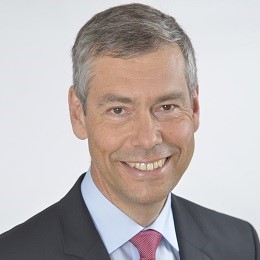
Prof. Dr.-Ing. Norbert Jardin, Chief Executive Officer of Ruhrverband, Essen, Germany
Prof Liu Ye is the Greenhouse Gas (GHG) research programme leader at The University of Queensland, Australia. Her research activities focus on finding innovative and practical solutions to tackle challenges in achieving net-zero emissions, climate resilience, and sustainability in the urban water sector. She has established national and international leadership in the research field of GHG emissions from urban wastewater systems and has been active in this area for over 15 years. Prof. Ye has led many government- and industry-funded research projects and has over 150 publications in this area. She is also the lead editor of the recently published IWA book “Quantification and Modelling of Fugitive Greenhouse Gas Emissions from Urban Water Systems.” The research outputs from her group not only advance the understanding of fundamental GHG production but are also adopted by water utilities to quantify and reduce GHG emissions in full-scale treatment plants. She is a Fellow of the Royal Society of Chemistry (RSC) and an elected member of the Strategic Council of the International Water Association (IWA) since 2022.

Professor Liu Ye, University of Queensland, Australia
Dr. Ratul Das is the Executive Manager for Innovation and New Technology and Head of Desalination R&D for ACWA Power. He graduated with a Ph.D. in Chemical Engineering and was a former Postdoctoral fellow at King Abdullah University of Science and Technology. His work focusses on the development and execution of Desalination R&D Roadmap, which includes technology assessment, testing of newer technologies, optimization of desalination processes and development of simulation tools and performance models using process modelling, data engineering and artificial intelligence to deliver direct bottom-line impact and maintain a competitive edge. Ratul has authored more than 20 articles in reputable journals, filed several patents and has given oral presentations at national and international conferences.
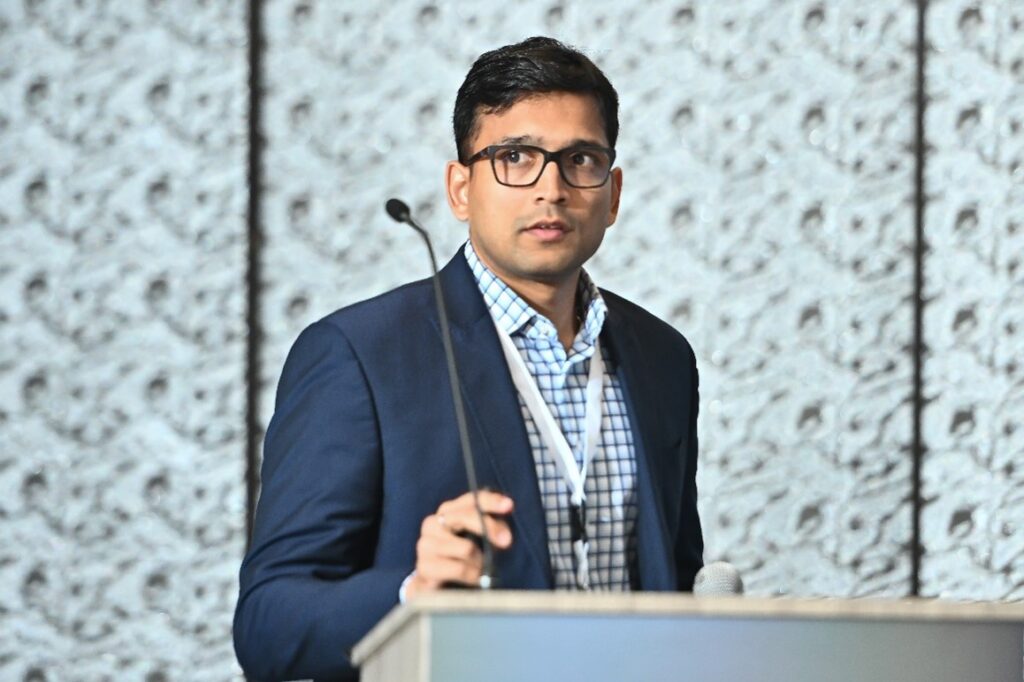
Dr. Ratul Das, ACWA Power, Saudi Arabia
Prof. Dr.-Ing. Jörg E. Drewes is Chair Professor of Urban Water Systems Engineering at the Technical University of Munich (TUM), Germany. Before joining TUM in 2013, he served as Full Professor of Civil and Environmental Engineering at the Colorado School of Mines (CSM), USA (2001-2013) and Director of Research for the National Science Foundation Engineering Research Center on Reinventing the Nation’s Urban Water Infrastructure (ReNUWIt). His research and scholarly activities are closely related to the common theme of energy efficient advanced water treatment systems and water recycling. In particular, he is interested in novel design approaches for natural and engineered treatment systems; distributed non-potable water reuse; potable water reuse; monitoring strategies and treatment performance assessments to assure public health; and state-of-the-art analysis of emerging trace organic chemicals and pathogens in natural and engineered systems. Prof. Drewes has led many research projects on those subjects in the USA, Europe, the Middle East, and Africa and published more than 300 peer-reviewed journal papers and book contributions. Professor Drewes is a member of the Advisory Council on Global Change directly advising the German Government (WBGU) since 2020. He is a Fellow of IWA, a member of the IWA Strategic Council of IWA, and past-Chair of IWA’s Water Reuse Specialist Group.
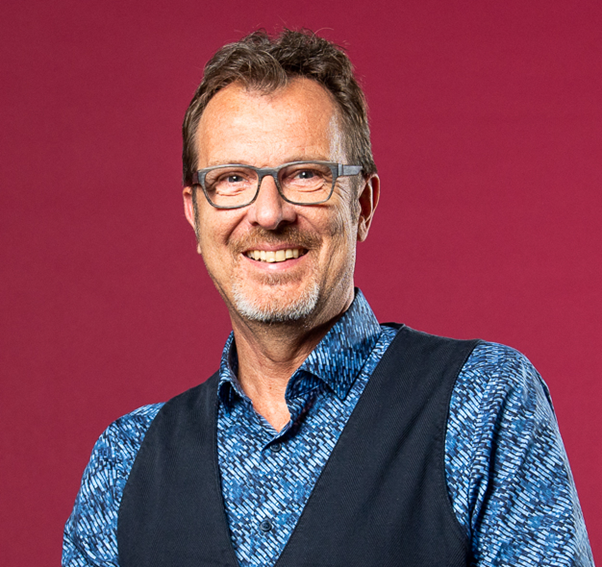
Prof. Dr.-Ing. Jörg E. Drewes, Technical University of Munich, Germany
Dr. Jeffrey Lewis is the General Manager for ECT2 in Europe. Jeff is originally from Canada but relocated to Europe after completing his PhD at the University of Quebec. He is a chemical engineer by training and has been working with PFAS for most of his career, first in the context of groundwater characterization and currently in the context of treatment and remediation. Jeff has been involved in a range of projects dealing with everything from groundwater to drinking water to industrial process water to landfill leachate to wastewater. Jeff lives in Umeå, Sweden with his wife and two daughters. In his spare time, he enjoys cross country skiing and making ice cider.
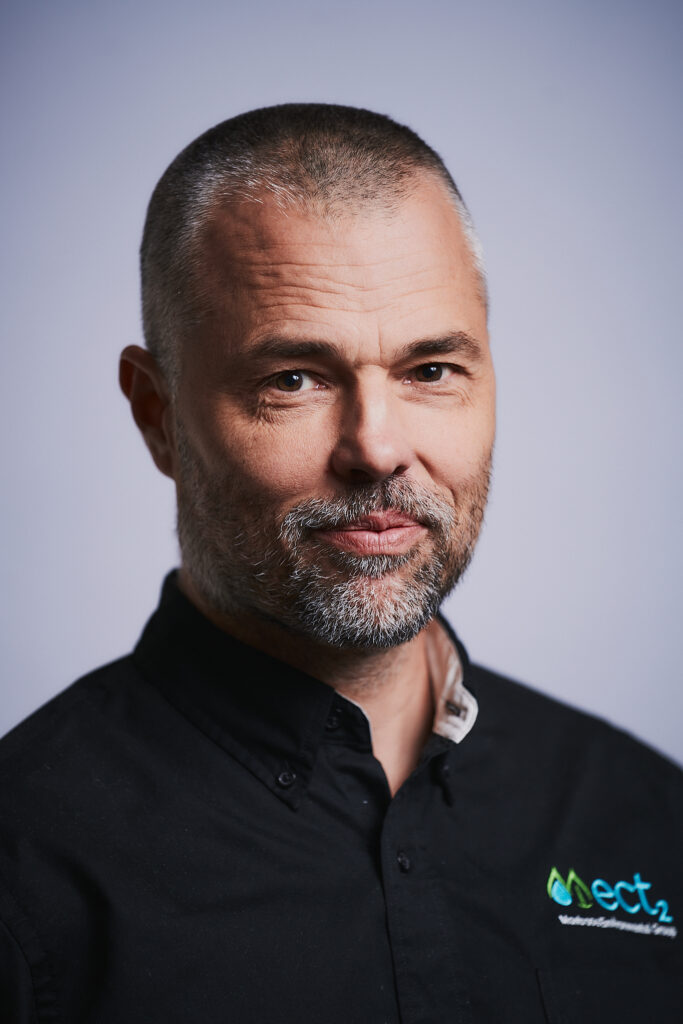
Dr. Jeffrey Lewis, ECT2, Sweden
Session Chairs
Meet some of our session chairs below:

Jonathan Clement
Ramboll Water
Singapore

Despo-Fatta Kassinos
University of Cyprus
Cyprus

Marta Carballa
University of Santiago de Compostela
Spain

Lisa Bross
German Association for Water, Wastewater and Waste
Germany

Ana Soares
Cranfield University
United Kingdom

Zhiguo Yuan
City University of Hong Kong
China

Michelle Young
Carollo Engineers
USA

Burkhard Teichgräber
Emschergenossenschaft/ Lippeverband
Germany

Mark van Loosdrecht
Delft University of Technology
The Netherlands

Amanda Lake,
Jacobs
USA

Paul Buijs
1st:water
UAE

Konrad Koch
Technical University of Munich
Germany
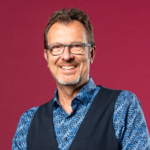
Jörg E. Drewes
Technical University of Munich
Germany

Eric Hoek
UCLA Samueli School of Engineering
USA

Dr. Ratul Das
ACWA Power
Saudi Arabia

Enrique Cabrera
Polytechnic University of Valencia
Spain
Session Keynote Speakers
Meet some of our session keynote speakers below:

Althoff Heiko
Germany
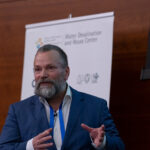
Gilbert Galjaard
Netherlands

Krishna Pagilla
USA

Jaume Alba
Spain

Christoph Donner
Germany

Karakurt Sema Fischer
Switzerland

Vera Kohlgrueber
Germany

Arne Wieland
Germany

Eberhard Morgenroth
Switzerland

Regina Gnirss
Germany

Olga Ferrer
Spain

Thomas Wintgens
Germany

Paul Buijs
UAE

Eric Hoek
USA

April Gu
USA
Poster presentations – abstract submission deadline 3 June
Abstract Information
The conference technical programme will consist of platform presentations, poster presentations, workshops and panel discussions. All outline papers selected for presentation will be included in the online preprint – which will be accessible to all conference delegates. Full papers from a selection of presentations will also be considered for publication in one of the IWA Publishing journals. Selected posters will be on display for the duration of the conference. Outline papers are now invited for poster presentations on the indicated topics and should be submitted via the submission portal.
Outline papers are now being accepted only for poster presentations and shall be limited to two A4 pages (excluding figures and tables – with an additional 2 x A4 pages for diagrams, tables, and figures, four pages in total). The outline paper has to contain adequate information to allow for a sound review. To submit your outline paper please click here.
The IWA Leading Edge Conference on Water and Wastewater Technologies is designed to be the place for sharing the latest insights into how pioneering science, technological innovation and leading practices will shape the major transformation in water management that is underway.
